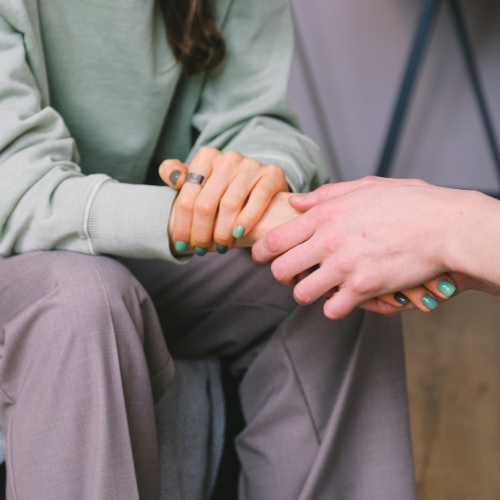Discovering that a loved one is in an abusive relationship can be heart-wrenching and overwhelming. You may feel helpless, unsure of what to say or do, and fearful for their safety. Supporting someone in an abusive relationship requires patience, empathy, and knowledge of the right steps to take. This article will guide you through understanding the dynamics of abuse, recognizing the signs, offering support, and helping your loved one find safety and healing.
Understanding Domestic Abuse
Domestic abuse, also known as intimate partner violence, includes a range of behaviours used to maintain power and control over another person. Abuse can be physical, emotional, psychological, sexual, or economic. Understanding these different forms of abuse is crucial in recognizing and addressing the situation effectively.
Types of Domestic Abuse
Physical Abuse: Any act of violence such as hitting, slapping, punching, or using weapons to harm the victim.
Emotional and Psychological Abuse: Verbal abuse, threats, intimidation, humiliation, and controlling behaviour aimed at undermining the victim’s mental health and self-worth.
Sexual Abuse: Non-consensual sexual acts, coercion, and any behaviour that violates the victim’s sexual autonomy.
Economic Abuse: Controlling the victim’s access to financial resources, preventing them from working, or stealing their money.
Technological Abuse: Using technology to stalk, harass, or control the victim, such as monitoring their online activities or using GPS tracking.
Coercion: Coercion in an abusive relationship involves manipulating or forcing a partner into actions against their will. This can include threats, intimidation, or emotional blackmail to gain compliance. Coercion strips the victim of their autonomy and reinforces the abuser’s control, creating a climate of fear and dependence. Recognizing coercive tactics is vital for identifying abuse and supporting victims in reclaiming their independence.
Recognizing the Signs of Abuse
Understanding the warning signs of abuse can help you identify if your loved one is in an abusive relationship. Here are some common indicators:
Behavioural Signs
Isolation: Your loved one may become increasingly isolated from friends, family, and social activities at the insistence of their partner.
Low Self-Esteem: They may exhibit low self-worth, frequently apologizing or making excuses for their partner’s behaviour.
Fearfulness: They might appear anxious, fearful, or overly cautious, especially around their partner.
Changes in Behaviour: Sudden changes such as withdrawal, depression, or submissiveness can indicate abuse.
Reluctance to Talk: They may avoid discussing their relationship or become defensive when asked about their partner.
Physical Signs
Unexplained Injuries: Frequent injuries with vague or implausible explanations, such as bruises, cuts, or burns.
Frequent Absences: Missing work, school, or social engagements without reasonable explanations.
Changes in Appearance: Drastic changes in appearance, like wearing clothing to cover injuries or appearing dishevelled.
Psychological Signs
Depression and Anxiety: High levels of stress, anxiety, or depression are common among abuse victims.
Hypervigilance: Being constantly on edge, nervous, or overly alert to their surroundings.
Substance Abuse: Increased use of alcohol or drugs as a coping mechanism.
How to Support a Loved One in an Abusive Relationship
Supporting a loved one in an abusive relationship requires sensitivity, patience, and practical strategies. Here are steps you can take to help:
Offer Emotional Support
Provide Practical Help
Encourage Professional Support
Respect Their Autonomy
Creating a Safe Environment
Ensuring your loved one’s safety is paramount. Here are steps to create a safe environment for them:
Immediate Safety Measures
- Emergency Contacts: Make sure your loved one has a list of emergency contacts, including local shelters, hotlines, and trusted friends or family.
- Escape Plan: Help them develop an escape plan, including safe places to go and people to contact in an emergency.
- Emergency Bag: Encourage them to pack an emergency bag with essentials like clothing, identification, money, and important documents.
Long-Term Safety
- Restraining Orders: Assist your loved one in obtaining a restraining order or protection order against their abuser.
- Secure Housing: Help them find safe and secure housing, whether with friends, family, or in a shelter.
- Ongoing Support: Continue to provide emotional and practical support as they rebuild their life and seek long-term safety.
Educating Yourself and Others
Raising awareness and educating yourself and others about domestic abuse is crucial in preventing and addressing it. Here are ways to educate and advocate:
Learn About Domestic Abuse
Read and Research: Educate yourself about the dynamics of domestic abuse, its impact, and the available resources.
Attend Workshops: Participate in workshops and training sessions on domestic abuse to gain deeper insights and practical skills.
Stay Informed: Keep up to date with the latest research and news related to domestic abuse.
Raise Awareness
Share Information: Use social media and other platforms to share information about domestic abuse and available resources.
Host Events: Organize or participate in community events to raise awareness and provide education on domestic abuse.
Advocate for Change: Support policies and initiatives that protect victims and work towards preventing domestic abuse.
Support Organizations
Donate: Contribute to organizations that support domestic abuse victims through donations or fundraising.
Volunteer: Offer your time and skills to local shelters, hotlines, or support groups.
Collaborate: Partner with organizations and advocacy groups to amplify your efforts and create a broader impact.
Encouraging Self-Care
Supporting someone in an abusive relationship can be emotionally draining. It’s important to take care of yourself as well. Here are some self-care tips:
Manage Stress
❤ Seek Support: Talk to a trusted friend, counsellor, or support group about your feelings and experiences.
❤ Practice Relaxation: Engage in activities that help you relax and de-stress, such as yoga, meditation, or spending time in nature.
Maintain Balance
❤ Prioritise Self-Care: Make time for self-care activities that nurture your body and mind, like exercise, hobbies, and rest.
❤ Stay Connected: Maintain social connections and engage in activities that bring you joy and fulfillment.
❤ Recognize Limits: Acknowledge your limits and seek professional help if you feel overwhelmed or unable to cope.
Seek Professional Help
❤ Counselling: Consider seeking counselling or therapy to help you process your emotions and develop coping strategies.
❤ Support Groups: Join support groups for friends and family of domestic abuse victims to share experiences and gain support.
❤ Educational Resources: Utilize books, articles, and online resources to learn more about self-care and supporting loved ones.
Supporting a loved one in an abusive relationship is a challenging and emotional journey. By recognizing the signs of abuse, offering compassionate support, ensuring their safety, and educating yourself and others, you can make a significant difference in their lives. Remember to take care of yourself as you navigate this process and seek professional help when needed. Together, we can create a safer, more supportive world for those affected by domestic abuse.
At Healing Through Love, we are committed to providing resources and support to help individuals and communities address domestic abuse. Your involvement and support can empower survivors and create lasting change. Reach out, advocate, and be a source of strength for those in need.






